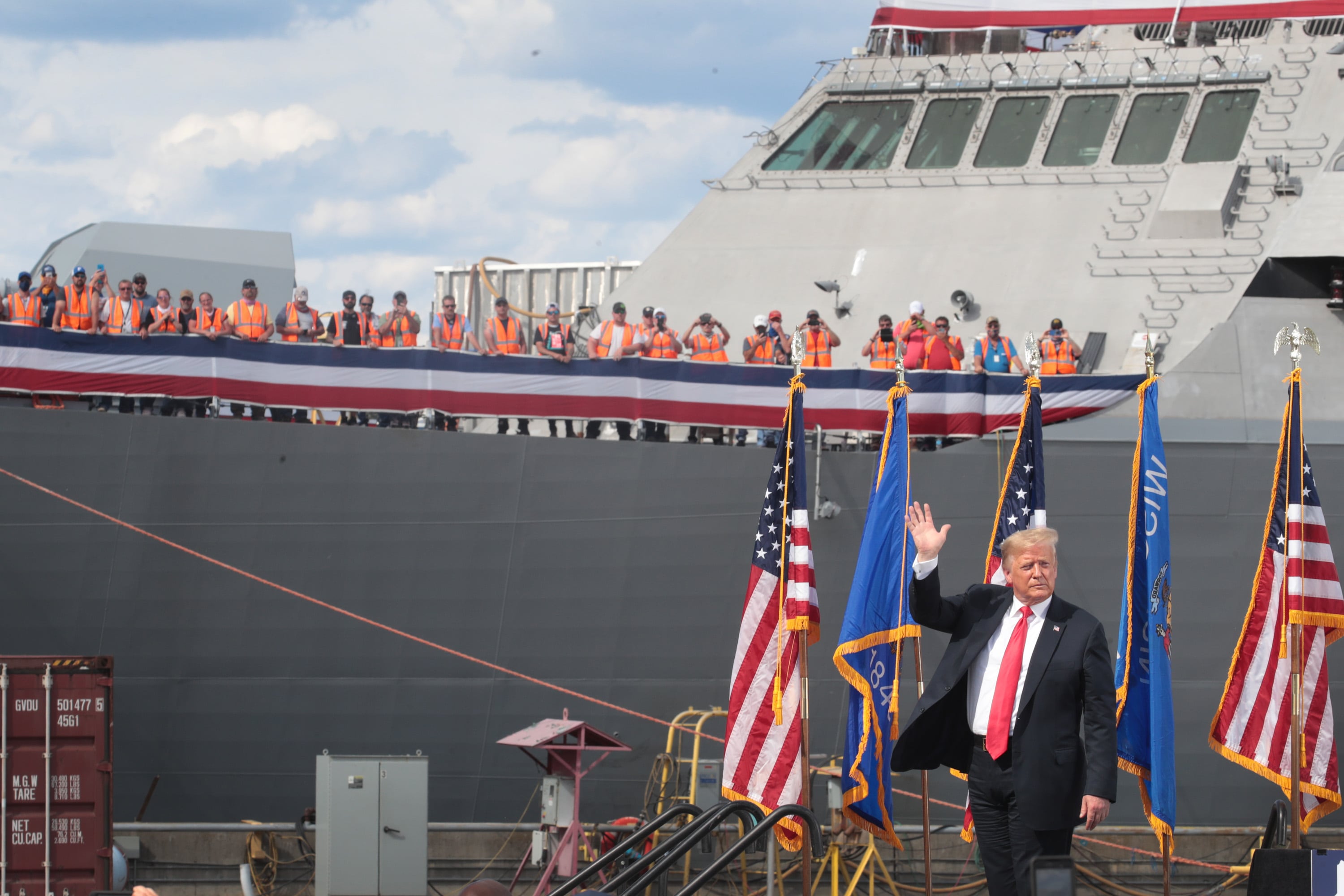ROME — The US Navy is cancelling its Constellation frigate program following months of cost overruns and delays but plans to keep two vessels that are already being built in Wisconsin.
“We’re reshaping how we build and field the Fleet, working with industry to deliver warfighting advantage, beginning with a strategic shift away from the Constellation-class frigate program,” Navy Secretary John C. Phelan said in a post on X.
Phelan said that four ships under contract but yet to be built by Fincantieri would now be cancelled.
“The navy and our industry partners have reached a comprehensive framework that terminates for the Navy’s convenience the last four ships of the class which have not begun construction,” he said.
“We greatly value the shipbuilders of Michigan and Wisconsin. While work continues on the first two ships those ships remain under review as we work through this strategic shift. Keeping this critical workforce employed and the yard viable for future navy shipbuilding is of foremost concern,” he added.
Italian shipyard Fincantieri won the contract to build the frigates in 2020 at its Marinette Marine yard in Wisconsin, with the US Navy eyeing an eventual order of 20 ships.
The baseline design was Fincantieri’s FREMM frigate, which is already in service with the French and Italian navies among others. The U.S. Navy originally reported “basic and functional designs” were 88% complete.
But a March report by the United States Government Accountability Office claimed the U.S. Navy proceeded to order numerous design changes, meaning that five years on, the program was only 70% complete and three years late.
“As a result of these changes, in part, the frigate now bears little resemblance to the parent design that the Navy touted as a built-in, risk reduction measure for the program in 2020,” the report stated.
“Now, in 2025, the ongoing redesign has driven weight growth at levels that exceed available tolerances. Already the Navy is considering a reduction in the frigate’s speed requirement as one potential way, among others, to resolve this weight growth,” the report added.
In his statement on Tuesday, Phelan said, “The facts are clear. It is time to deliver the ship our warfighters need at a pace that matches the threat environment, not the comfort level of the bureaucracy.”
In a statement, Fincantieri said it expected to receive new orders for “amphibious, icebreaking and other special mission” ships to compensate for lost business.
“On top of the aforementioned award of future orders, in order to cover the above, the agreement indemnifies Fincantieri Marine Group, on existing economic commitments and industrial impacts through measures provided by the U.S. Navy, as a result of the contractual decision made for its own convenience,” the firm said.
Fincantieri said it has invested more than $800 million in its four U.S. shipyards: Marinette, Green Bay, Sturgeon Bay, and Jacksonville, and now employs 3,750 staff in the United States.
George Moutafis, CEO of Fincantieri Marine Group, said, “Our investments in the U.S. shipyards are a testament to our long-term vision: to be a cornerstone of the U.S. maritime industrial base and a driving force to sustain the momentum of the national shipbuilding renaissance, the American shipbuilding renaissance.”
Sources in Italy told Defense News the work on the six frigates had been worth $5.5 billion. Continuing work on the first two, plus indemnities agreed with the U.S. government, would be worth $3 billion, while new orders planned would be worth $2 billion.
Phelan’s decision to truncate the Constellation program was praised by Senate Armed Services Committee Chairman Sen. Roger Wicker (R-Miss.).
“I commend (the Navy secretary) for canceling the troubled Constellation-class frigate program — a tough but vital call. Biden-era design changes derailed the contractor, but Fincantieri Marinette Marine will remain key to our shipbuilding future. This is a clear signal that Navy program management is being fixed and accountability restored. Stronger Navy ahead!”
In his statement, Phelan added, “The Navy needs ships and looks forward to building them in every shipyard that can. A key factor in this decision is the need to grow the fleet faster to meet tomorrow’s threats. This framework puts the Navy on a path to more rapidly construct new classes of ships and deliver the capability our warfighters need in greater numbers on a more urgent timeline.”
Editor’s note: This story was updated after publication to specify the value of the initial Constellation contract: $5.5 billion.
Tom Kington is the Italy correspondent for Defense News.





